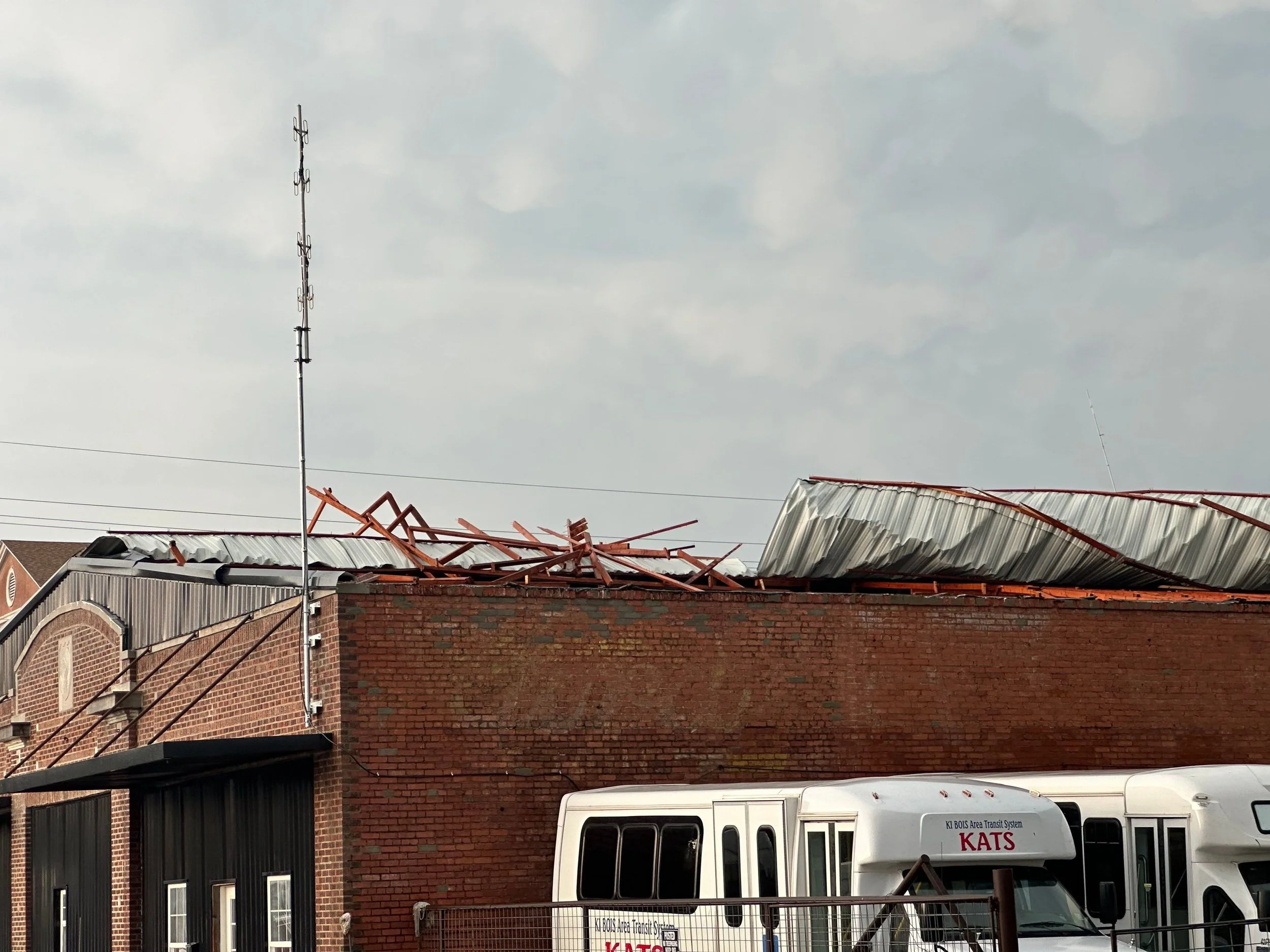Storm Recovery: Step-by-Step Guide for Homeowners & Business Owners
When severe weather strikes, your roof is the first line of defense, whether it’s protecting your family home or your business property. High winds, hail, and heavy rain can leave behind damage that isn’t always obvious until leaks start appearing inside.
Knowing what to do right after a storm can protect your investment, speed up insurance claims, and save you from costly repairs later. This step-by-step guide will help both homeowners and business owners navigate the storm recovery process with confidence.
Step 1: Prioritize Safety
Before anything else, make sure people are safe.
Avoid downed power lines, standing water, or unstable trees.
Never climb onto the roof yourself, wait for a professional inspection.
Step 2: Perform a Ground-Level Roof Check
Look for signs that may require storm repair or inspection by a roofing contractor:
Missing or lifted shingles
Dented gutters or flashing
Branches or debris on the roof
Damaged siding, fences, or HVAC units (for businesses)
Business owners should also check parking areas, signage, and roof-mounted equipment for damage.
Step 3: Document the Damage
Use photos and videos to record visible issues.
Take wide shots and close-ups from multiple angles
Include time and date stamps
Save local weather alerts as proof of the storm event
These records help whether you’ll need a roof repair, full roof replacement, or coverage for additional property damage.
Step 4: Protect Your Property from Further Damage
Homeowners: Use tarps or buckets to contain leaks, and move valuables out of harm’s way.
Business owners: Secure sensitive equipment, cover inventory, and block off unsafe areas for staff or customers.
Temporary fixes won’t solve the problem, but they can minimize additional losses until professional help arrives.
Step 5: Call a Licensed Roofing Contractor
Contact a reputable roofing company that handles both residential roofing and commercial roofing.
A trusted contractor will:
Provide a detailed inspection report
Determine if you need a roof repair or full roof replacement
Communicate with your insurance adjuster
Handle everything from homes to large-scale business properties
Step 6: File Your Insurance Claim
Notify your insurance company quickly
Submit your photos, videos, and contractor’s report
Request that your roofing contractor meet with the adjuster to ensure no damage is overlooked
For business owners, don’t forget to document lost operating time or damaged assets..
Step 7: Plan for Long-Term Protection
Storm recovery isn’t just about the quick fix. It’s about preventing the next crisis.
Homeowners: Consider impact-resistant shingles, metal roofing, or enrolling in a maintenance program.
Business owners: Ask about flat roof systems, TPO, or commercial roof coatings for stronger protection.
Both: Work with a general contractor for additional construction services if your property needs structural repair.
Gulf States Roofing & Construction: Storm Recovery You Can Trust
Whether you’re a homeowner or a business owner, storm recovery can feel overwhelming, but you don’t have to go through it alone. At Gulf States Roofing & Construction, we provide honest inspections, dependable service, and long-lasting solutions. From quick storm repairs to complete roof replacements, we’ve got you covered.
Schedule your free roof inspection today at www.gulfsrc.com or call 877-448-5372

